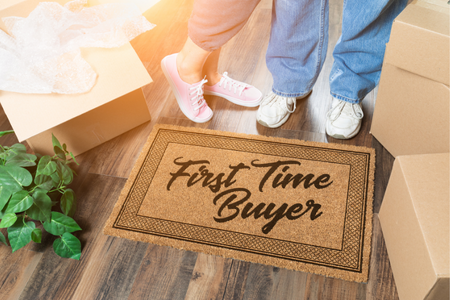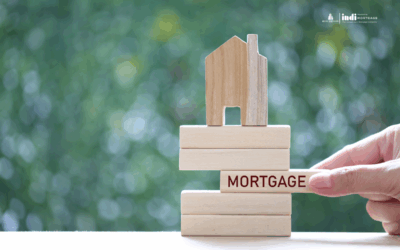Welcome To Our Mortgage Educational Blog About:
How First Time Home Buyers Can Prepare Their Finances

A lot of things are involved in buying a home, and the most important of them is the financing of your home purchase. As a first time home buyer, there are ways to make financing your home purchase easier, but first you should know if you qualify as a first time home buyer.
Who is a First Time Home Buyer?
Generally, a first time home buyer is anyone who hasn’t previously owned a home. However, there are some instances that qualify an individual as a first time home buyer in Canada.
- You and your common-law partner, or spouse have not occupied a home either of you own for a period of four years.
- Your common-law partnership or marriage has recently broken down, even if your ex-partner or ex-spouse is a homeowner.
How to Prepare Your Finances as a First Time Home Buyer
The most important part of preparing to purchase a home is gathering your finances to cover the purchase, closing costs, and other costs on your dream home. While you think you have enough money saved to purchase that house, your mortgage lender may inform you that you’re not adequately prepared for the financial implication of purchasing a home.
As a first time home buyer, your lack of experience in the mortgage business means you may not be qualified for your lender’s offer.
You need to figure out if you can afford a home by calculating your gross income and comparing it to the cost of the home you desire. Your monthly debt, including your monthly mortgage cost, shouldn’t exceed 42% of your gross income. Traditionally, your mortgage alone shouldn’t exceed 35% of your gross income (pre tax). This should include your mortgage, property taxes, and home insurance. Remember, you should always approach a mortgage broker for assistance.
Here are some ways to prepare finances for your first home purchase.
Saving
While scrolling through home listings, you may find an average cost for your dream home, and begin saving towards meeting that cost. Generally, you’re required to foot at least 20% of your dream home’s purchase cost. If you are a first time home buyer, you will only need 5% down based on the total purchase price of the home. However, you can pay more than that, to reduce the duration of your mortgage payback.
Tax-free Savings Account (TFSA)
It is advisable to save for your first home purchase in a non-taxable savings account. With a tax-free savings account, you can save, withdraw, and invest your money without tax deductions, making you reach your savings target faster.
Automatic Saving
Also, to help you reach your savings goal faster, set up an automatic transfer from your checking account to your tax-free savings account.
Registered Retirement Savings Plan (RRSP)
You can also consider saving with a Registered Retirement Savings Plan, RRSP. This type of savings account is aimed at helping you keep money till your retirement. It is tax-free till you withdraw your money from that account. As a first time home buyer you can use the Home Buyers Plan (HBP). We will cover this in a future blog!
Mortgages
Mortgages are loans on your income that help you easily find the purchase of a home. To qualify for a mortgage, you need to be able to personally fund some percentage of your dream home’s cost, while your mortgage funds the rest. Mortgages are given by mortgage banks (lenders) or brokers. You repay mortgages in a percentage that the bank sees fit for your income.
As a first time home buyer, you’re eligible for some incentives. However,
- You must be a Canadian resident or citizen.
- Your household income must be less than $120,000 annually ($150,000 for buyers in Vancouver, Toronto, and Victoria).
- You must have the minimum down payment saved.
- Your mortgage is capped at four times the maximum household income of $120,000, or $480,000. This means the average price of a home would be $500,000 to $600,000, depending on the down payment.
Government incentives for first time home buyers are available for existing, new construction, and manufactured or mobile homes in the following ways.
- 5% or 10% for a first-time buyer’s purchase of a newly constructed home
- 5% for a first-time buyer’s purchase of a resale (existing) home
- 5% for a first-time buyer’s purchase of a new or resale mobile/manufactured home
First Time homebuyers will have to repay the Incentive based on the property’s fair market value at the time of repayment. If a homebuyer received a 5% Incentive, they would repay 5% of the home’s value at repayment. If a homebuyer received a 10% Incentive, they would repay 10% of the home’s value at repayment.
Conclusion
Buying a home is a big step, and needs adequate financial planning. However, as a first time home buyer in Canada, there are government incentives and savings that can help you plan your finances towards buying your dream home. Meet with a mortgage broker to determine the best route for you.
Don’t hesitate to contact us with any questions you may have.
Recent Educational Blogs
Preparing for Renewal Season
Oct 2025 | Preparing for Renewal Season: What 2026 Borrowers Should Do NowWith nearly 60% of Canadian homeowners set to renew their mortgages by the end of 2026, preparation has never been more important. After years of ultra-low rates during the pandemic, many...
Navigating Mortgage Renewals
Sept 2025 | Navigating Mortgage RenewalsFrom Rock-Bottom Rates to Today’s RealityIf you were lucky enough to secure a mortgage in the early days of 2020, chances are your rate was impressively low, often near 1% to 2%. At the time, the Bank of Canada’s overnight rate...
How Your Credit Score Impacts Mortgage Approval
Aug 2025 | How Your Credit Score Impacts Mortgage Approval If you’re thinking about buying a home, you might be wondering how your credit score influences the process. The short answer: your credit score is one of the most important factors lenders consider when...



